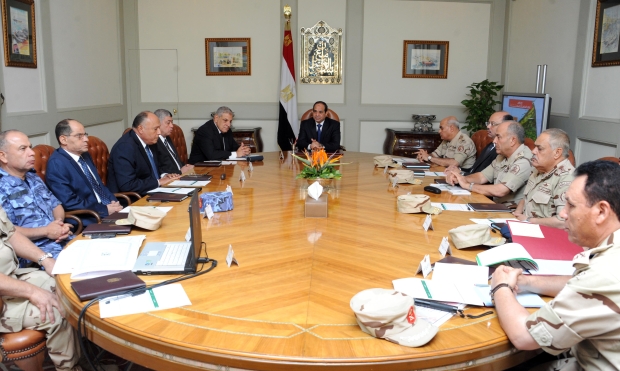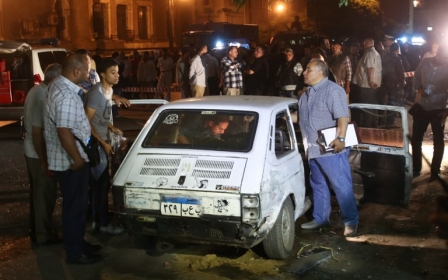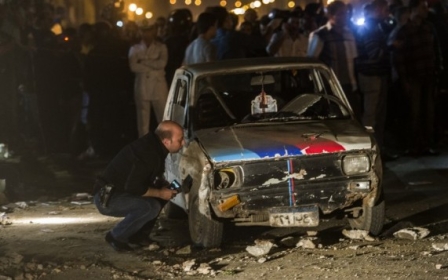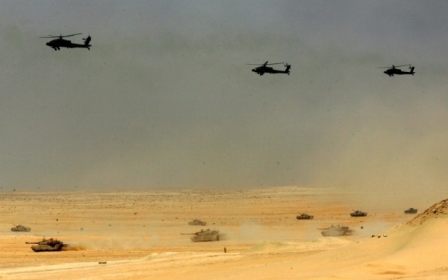Sisi says Egypt battling 'a huge war', declares emergency rule in Sinai
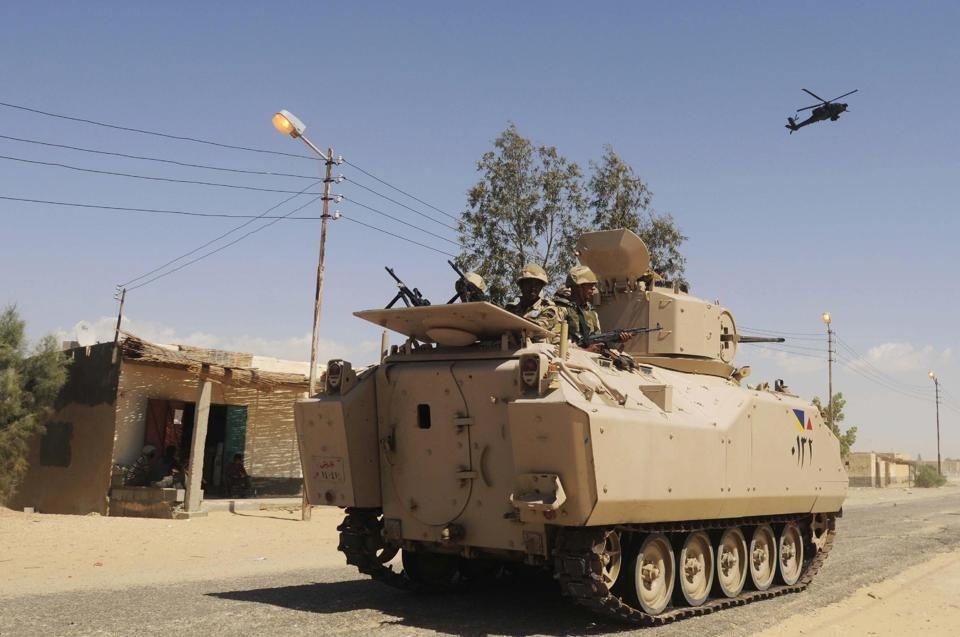
After declaring a state of emergency in much of Egypt's Sinai Peninsula following attacks on Friday that killed 31, the country's president said the attack was part of a long-term plot and had been expected.
"A plot is being woven against all of us. All that is happening has been expected," President Abdel-Fattah al-Sisi said in a televised nationwide address midday on Saturday. "Egypt is battling a huge war – a battle of existence. We should remain united; one hand, one heart."
Sisi did not name any specific groups in his address, but said that outside sources had plotted a suicide car bombing and a second attack in the restive northern part of the Peninsula.
After an urgent meeting with security officials on Friday, Sisi announced a state of emergency, effective for three months, across large areas of North Sinai.
The emergency measures include a curfew, which will be imposed for the three month period between 17:00 in the evening and 07:00 in the morning.
"It feels like we are trapped like a chicken on a farm," said Taiser Ali, who farms guavas in al-Arish where one of the two attacks occurred on Friday. The he army said the one who does not comply with the curfew will be in prison for four years."
Ali told MEE he could hear "massive shooting" in al-Arish throughout Saturday.
"We don't know how this will turn out, but as a farmer, I have not option but to comply with the army's instructions," he said.
There are now around 7,000 Egyptian army troops stationed on roads leading into the Sinai, as security forces continue to sweep the area for militants, reports Sky News Arabia.
In a further measure, the Rafah border crossing, Gaza's only land crossing not directly controlled by Israeli authorities, is closed "until further notice", effective from 05:00 local time (03:00 GMT) on Saturday.
The declaration of emergency also threatens anyone who violates army orders aimed at protecting state and private installations with prison, according to Arabic news site al-Arabiya.
Authorities have also declared three days of mourning across the country, after what security sources describe as the worst day for attacks against military personnel in some four years.
At least 31 soldiers were killed on Friday – 30 died after militants attacked the Karm Qawadis army checkpoint in the north Sinai Bedouin town of Sheikh Zuweid, ramming a car packed with explosives into the post.
Another soldier was killed in a separate incident, as militants opened fire at a second army checkpoint in al-Arish, the largest town in the largely desert area of North Sinai.
A council of military leaders has reporteldy been commissioned to investigate Friday’s events and take lessons from the attacks.
Military officials have blamed Ansar Beit al-Maqdis (ABM), the main militant group active in the Sinai and further afield, for the attacks.
However, as of Saturday morning the group have yet to issue any statement regarding Friday’s events.
Seven alleged members of the group were sentenced to death by a military court on Tuesday, over attacks in 2013 that led to the deaths of 10 soldiers in Lower Egypt.
Details of the attacks emerge
At the time of publication, no Egyptian officials had spoken on the record about the details of the attack – however, a security source who spoke to Anadolu described the aftermath of the huge bomb blast.
In an indication that the attack was highly organised, the source said that after the suicide car bomb explosion, a second group of militants sprayed the checkpoint with bullets before escaping.
The source also said that an army operations leader was injured on his way to the bomb site, after militants ambushed a convoy composed of military vehicles and ambulances speeding towards the area.
The convoy was hit by IEDs placed along the road leading up to the bomb site, the source said.
After this string of attacks, roads were closed and Egyptian army helicopters combed the area, coming under fire from militants firing rocket-propelled grenades.
The military official confirmed to Anadolu that the aircraft were Apache helicopters, bought by Egypt from the US.
The latest such deal saw the US sell Egypt 10 Apaches in September, to “help the Egyptian government counter extremists who threaten US, Egyptian and Israeli security.”
In a show of support for the Egyptian authorities after Friday’s attacks, the US State Department on Friday condemned the attack, promising further backing to an administration beleaguered by violence which has been concentrated in Sinai but has also hit the capital Cairo.
“The United States continues to support the Egyptian government’s efforts to counter the threat of terrorism in Egypt as part of our commitments to the strategic partnership between our two countries.”
The EU also decried the attack, saying that “we regret the loss of life and express our deepest condolences to the families of the victims.”
In the wake of the attacks, an emergency co-ordination meeting between leaders of the armed forces and the police is planned for later on Saturday.
New MEE newsletter: Jerusalem Dispatch
Sign up to get the latest insights and analysis on Israel-Palestine, alongside Turkey Unpacked and other MEE newsletters
Middle East Eye delivers independent and unrivalled coverage and analysis of the Middle East, North Africa and beyond. To learn more about republishing this content and the associated fees, please fill out this form. More about MEE can be found here.


